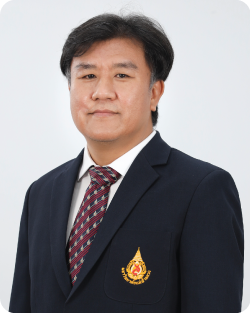
Epidemiology for Empowering Global Health Leaders: Making a Lasting Impact in Border and Fringe Communities.
Pioneering Solutions for Complex Health Challenges
Our vision is to develop doctoral-level professionals who are adept at designing robust systems, mechanisms, and innovations to effectively prevent and control intricate public health threats. We emphasize an approach that integrates evidence-based knowledge with real-world situations, ensuring our graduates are prepared for practical application and profound impact.
The program aims to foster managerial leadership skills crucial for collaborating seamlessly with national and international partners, alongside promoting a commitment to life-long learning. We are dedicated to producing graduates who can create novel knowledge to advance epidemiological systems, mechanisms, and innovations, particularly in addressing health threats among marginalized populations, taking into account their social, cultural, geographical, and environmental contexts. This advanced research is intended to solve specific challenges and contribute directly to the development of national health policy.
Program Learning Outcomes (PLOs)
Upon completing the Doctor of Philosophy in Public Health program, you will demonstrate a sophisticated array of competencies essential for leading and innovating in public health. Our Program Learning Outcomes (PLOs) highlight the advanced capabilities and strategic value you will bring to the field.

Your Impactful Career in Advanced Epidemiological Solutions
Graduates of the Doctor of Philosophy Program in Public Health are prepared for highly influential and impactful roles that drive significant change at national and international levels. The program cultivates professionals who can lead in research, policy development, and the implementation of advanced public health interventions. Your expertise will be sought after in positions that require strategic thinking, innovative problem-solving, and cross-sector collaboration. Potential career paths include, but are not limited to:
in academic institutions, government agencies, or private research organizations.
influencing national and international health agendas.
within ministries of public health, international organizations, or NGOs.
leading surveillance and control efforts for complex health threats.
The program emphasizes experiential learning through:
Our program is built on a philosophy of practical Learning Approach "learning by doing." This section showcases how we balance foundational knowledge with practical, hands-on experience. You'll see how our curriculum directly prepares you to apply what you learn in real-world settings to make a tangible impact. The program emphasizes experiential learning through:

“Innovate Epidemiological Systems and Solutions That Create Real-World Impact in Marginal Communities.
Assoc.Prof.Dr.Tawatchai Apidechkul
Head of the Ph.D.PH (Epidemiology) Program
For a comprehensive look at the program structure and curriculum, please refer to the detailed plans for each track. The Doctor of Philosophy Program in Public Health offers a comprehensive and in-depth curriculum designed to develop advanced competencies in public health and epidemiology. The program requires a total of 48 credits.
Consists of 2 non-credit Prerequisite courses, 5 non-credit Required courses, and a 48-credit Dissertation, totaling 48 credits.
Includes 2 non-credit Prerequisite courses, 9 credits of Required course-I, 5 non-credit Required course-II, 3 credits of Elective course, and a 36-credit Dissertation, totaling 48 credits.
Admissions & Program Fees
Ready to start your journey? This section provides all the essential information for prospective students, including a clear breakdown of program fees and links to detailed admission requirements.
Master’s degree in public health, health science, or medicine.
For Plan 1.1, applicants are required to have at least two academic papers published in international journals (indexed in Scopus, Web of Science, PUPMED, or other databases), with the applicant as the first or corresponding author for at least one paper.
Applicants must present one of the following valid English proficiency test results (not exceeding two years from the exam date):
Native English speakers (considered by their original country of residency) are exempted from this requirement.
This table provides a clear overview of the total program and per-semester costs for both Thai and International students, allowing for easy comparison.
| Student Type | Total Program Fee | Per Semester Fee |
|---|---|---|
| Thai Students | 330,000 THB | 55,000 THB |
| International Students | 429,000 THB | 71,500 THB |
For detailed requirements and the application process, please visit the official admissions portal.
Visit Admissions →